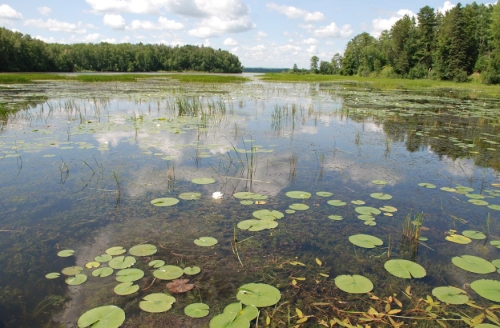Practice Areas
The Environment and Natural Resources Division has built a distinguished record of legal excellence on a wide range of issues, from the management of public lands to the implementation, enforcement, and defense of land mark environmental statutes. The Division is headed by the Office of the Assistant Attorney General and organized into ten practice areas: Appellate; Environmental Crimes; Environmental Defense; Environmental Enforcement; Executive Office; Land Acquisition; Law and Policy; Natural Resources; Tribal Resources; and Wildlife and Marine Resources.


The Appellate Section represents the federal government in federal and State appellate courts in cases arising under the more than 200 statutes for which the Division has litigation responsibility. ENRD is responsible for appeals in all cases handled by an ENRD Section in the trial courts.


The Environmental Crimes Section brings criminal cases against individuals and corporations that have violated laws designed to protect the environment, worker safety, and animal welfare. The Section brings cases in all ninety-four federal judicial districts, and provides advice and training to other prosecutors and investigators.


The Environmental Defense Section handles a very diverse docket of cases arising in both federal district courts and the courts of appeals under the nation’s major pollution-control statutes, such as the Clean Air Act and the Clean Water Act, as well as statutes governing pesticides, drinking water, toxic substances, and the management and cleanup of hazardous wastes.


The Environmental Enforcement Section is the largest litigating section in the Division. The Section is responsible for bringing civil judicial actions under most federal laws enacted to protect public health and the environment from the adverse effects of pollution, such as the Clean Air Act, Clean Water Act, Safe Drinking Water Act, Oil Pollution Act, Resource Conservation and Recovery Act (RCRA), and Superfund law.


The Executive Office is the operational management and administrative support section for ENRD. The Office is comprised of several program offices that serve the needs of the Division and the Department, and ultimately nation and the American public.


ENRD’s Land Acquisition Section plays a unique, specialized, and essential role in supporting federal programs by enabling the government to acquire private property for public purposes while ensuring that it satisfies the Constitutional mandate that landowners be fairly compensated.


The Law and Policy Section – often referred to as LPS – advises the Assistant Attorney General on environmental legal and policy questions and helps develop and support ENRD priorities and initiatives. Much of its work involves cross-cutting issues that require coordination among multiple sections in ENRD, multiple components in the Department of Justice, and multiple agencies in the Executive Branch of the federal government, as well as with local, State, and Tribal governments.


The Natural Resources Section represents virtually every major federal agency in federal district court, the Court of Federal Claims, and State courts throughout the country in litigation concerning novel and complex issues arising under more than 80 natural resource, environmental, and cultural resource statutes, various treaties and international agreements, interstate compacts, and congressional referrals.


The Tribal Resources Section litigates to protect almost 60 million acres of lands held in trust for Tribes and individual Indian lands, as well as the rights and resources associated with those lands. The Section also defends challenges to decisions made by the Secretary of the Interior on behalf of Tribes.


The Wildlife and Marine Resources Section is responsible primarily for defensive litigation that arises under the federal wildlife and marine species conservation laws. This includes litigation in U.S. district courts nationwide over which species should be listed as threatened or endangered under the Endangered Species Act and cases challenging the way in which protected wildlife are considered in planning for federal infrastructure.

 U.S. Department
of Justice
U.S. Department
of Justice